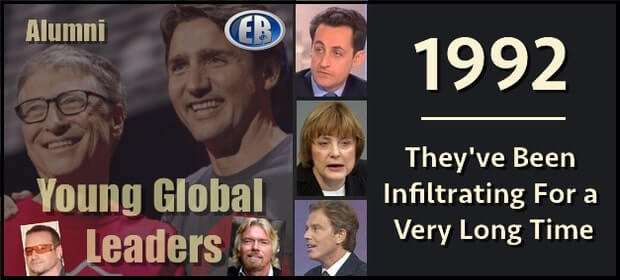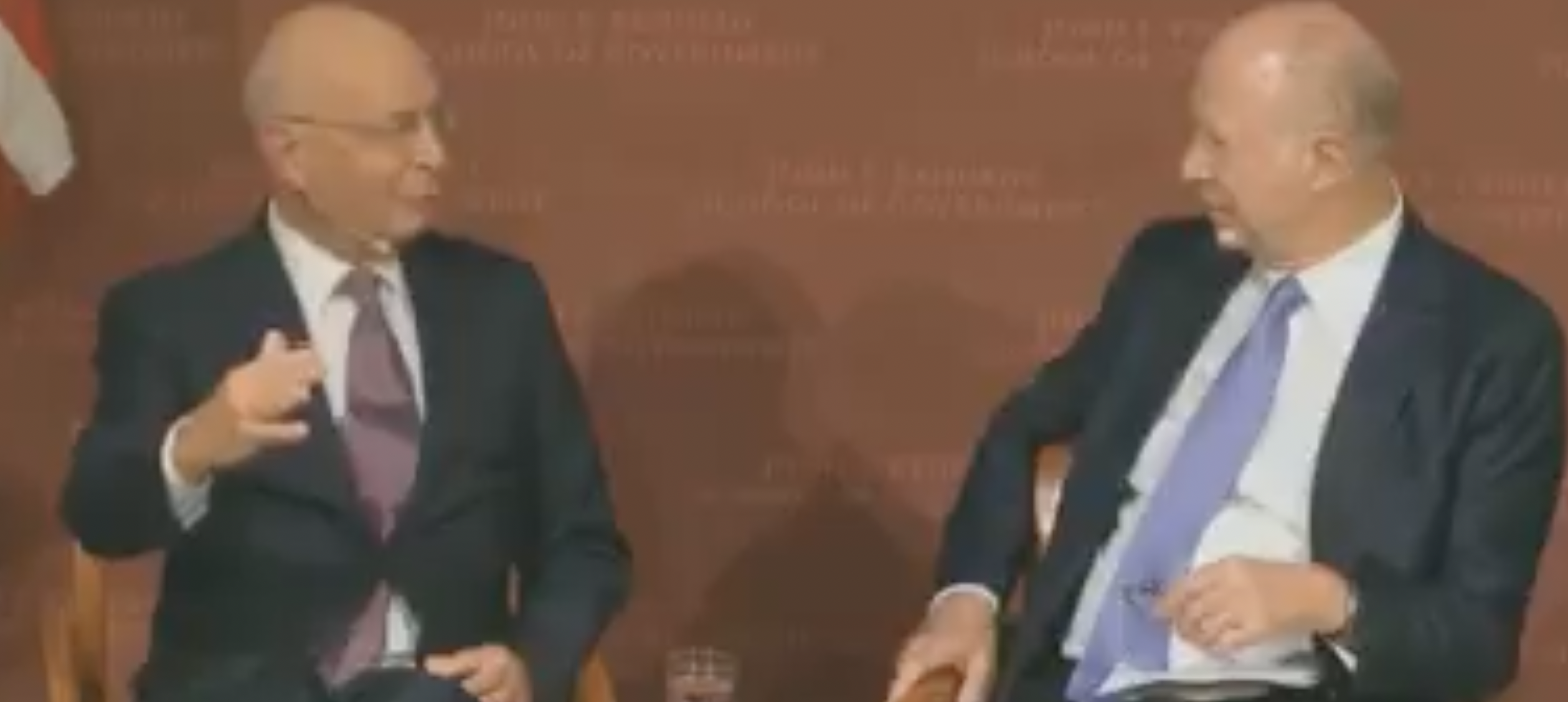World Economic Forum’s “Young Global Leaders” Revealed

All Global Research articles can be read in 51 languages by activating the “Translate Website” drop down menu on the top banner of our home page (Desktop version).
To receive Global Research’s Daily Newsletter (selected articles), click here.
Follow us on Instagram and Twitter and subscribe to our Telegram Channel. Feel free to repost and share widely Global Research articles.
First published on February 13, 2022
***
Through its Young Global Leaders program, the World Economic Forum has been instrumental in shaping a world order that undermines all democratic principles. For several decades, this program has nurtured compliant leaders acting as WEF agents in governments around the world. The consequences are far-reaching and may turn out to be devastating for humanity.
I have to say then I mention names like Mrs Merkel, even Vladimir Putin and so on they all have been Young Global Leaders of The World Economic Forum. But what we are really proud of now with the young generation like Prime Minister Trudeau, President of Argentina and so on, is that we penetrate the cabinets… It is true in Argentina and it is true in France now… (Klaus Schwab)
Click here or image to access Video
In 1992, Klaus Schwab and World Economic Forum launched a program initially called Global Leaders of Tomorrow.
In 2004, this program was turned into the Forum for Young Global Leaders (which I cover in my book The Global Coup D’Etat) – a 5-year program of indoctrination into WEFs principles and goals.
The aim was – and is – to find suitable future leaders for the emerging global society. The program has since its inception has included politicians, business leaders, royalty, journalists, performers and other cultural influencers who have excelled in their fields but have not yet turned 40 years of age (originally 43 in order to include Angela Merkel). It has since grown into an extensive global network of dedicated leaders with enormous resources and influence, all working to implement the technocratic plans of the World Economic Forum in their respective nations and fields.
The network creates a force for worldwide influence through the combination of the individual skills and resources of its members.
As Klaus Schwab says in the introductory quote, it has become very successful.
Already in the first year, 1992, a number of highly influential candidates were elected. Among 200 selected were global profiles such as Angela Merkel, Tony Blair, Nicolas Sarkozy, Bill Gates, Bono, Richard Branson(Virgin), Jorma Ollila (Shell Oil), and José Manuel Barroso (President of the European Commission 2004–2014).[1]
More examples of influential Young Global Leaders [2]:
Crown Princess Victoria of Sweden
Crown Prince Haakon of Norway
Crown Prince Fredrik of Denmark
Prince Jaime de Bourbon de Parme, Netherlands
Princess Reema Bint Bandar Al-Saud, Ambassador for Saudi-Arabia in USA
Jacinda Arden, Prime Minister, New Zeeland
Alexander De Croo, Prime Minister, Belgium
Emmanuel Macron, President, France
Sanna Marin, Prime Minister, Finland
Carlos Alvarado Quesada, President, Costa Rica
Faisal Alibrahim, Minister of Economy and Planning, Saudi Arabia
Shauna Aminath, Minister of Environment, Climate Change and Technology, Maldives
Ida Auken, MP, former Minister of Environment, Denmark (author to the infamous article “Welcome To 2030: I Own Nothing, Have No Privacy And Life Has Never Been Better”)
Annalena Baerbock, Minister of Foreign Affairs, Leader of Alliance 90/Die Grünen, Germany
Kamissa Camara, Minister of the Digital Economy and Planning, Mali
Ugyen Dorji, Minister of Domestic Affairs, Bhutan
Chrystia Freeland, Deputy Prime Minister and Minister of Finance, Canada
Martín Guzmán, Minister of Finance, Argentina
Muhammad Hammad Azhar, Minister of Energy, Pakistan
Paula Ingabire, Minister of Information and communications technology and Innovation, Rwanda
Ronald Lamola, Minister of Justice and Correctional Services, South Africa
Birgitta Ohlson, Minister for European Union Affairs 2010–2014, Sweden
Mona Sahlin, Party Leader of the Social Democrats 2007–2011, Sweden
Stav Shaffir, Leader of the Green Party, Israel
Vera Daves de Sousa, Minister of Finance, Angola
Leonardo Di Caprio, actor and Climate Activist
Mattias Klum, photographer and Environmentalist
Jack Ma, Founder of Alibaba
Larry Page, Founder of Google
Ricken Patel, Founder of Avaaz
David de Rothschild, adventurer and Environmentalist
Jimmy Wale, Founder of Wikipedia
Jacob Wallenberg, Chairman of Investor
Niklas Zennström, Founder of Skype
Mark Zuckerberg, Founder of Facebook
The purpose from the beginning has been to “identify and advance a future-oriented global agenda, focusing on issues at the intersection of the public and private sectors.”
Public–Private Partnerships is one of the cornerstones of the World Economic Forum philosophy. That is, a merger between state and large companies (also known as corporativism) with the aim of solving global problems of in a more “effective” way. The choice of leaders clearly reflects this aspiration.
The Young Global Leaders group was initially instructed to identify the major challenges of the 21st century. These included peace, the environment, education, technology and health – areas which these upcoming leaders could exploit politically, economically, and culturally in the new millennium.
Partners for Global Leaders of Tomorrow in 2000 were large global companies such as The Coca Cola Company, Ernst & Young, Volkswagen, and BP Amoco. These could contribute to the agenda by “playing an active role in developing and implementing the concept of the GLT project. The partners can therefore actively participate in the development of GLT programs; representatives of the partner companies as well as their guests are invited to GLT meetings .. ”Since the Global Leaders of Tomorrow was turned into Young Global Leaders 2004, partners such as the Bill & Melinda Gates Foundation, Google, and JPMorganChase (with alumni from the program) have also participated as sponsors.
The ultimate consequence of both public–private partnerships and these target areas is the creation of a largely tyrannical social contract in which the individual has become subordinated to these powerful interests. Noble goals of creating a better world have also been kidnapped. This is especially evident in the context of the partnership between the WEF and the UN and the implementation of the global goals (Agenda 2030) through the application of the technologies of the Fourth Industrial Revolution.



No comments:
Post a Comment